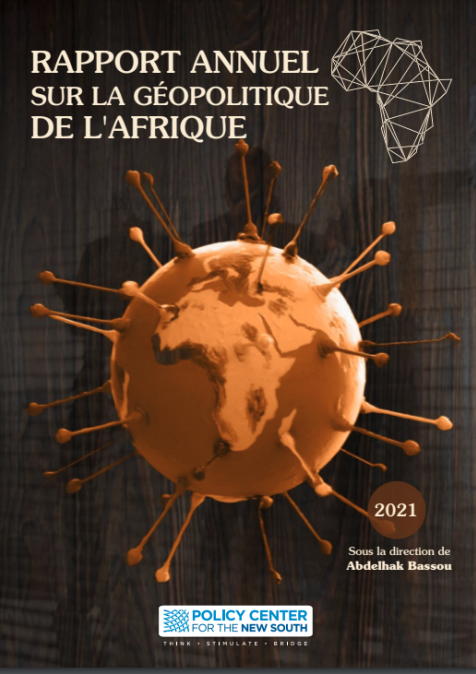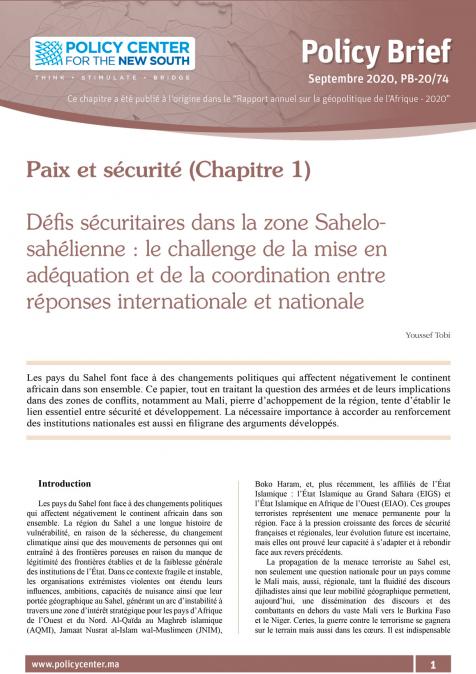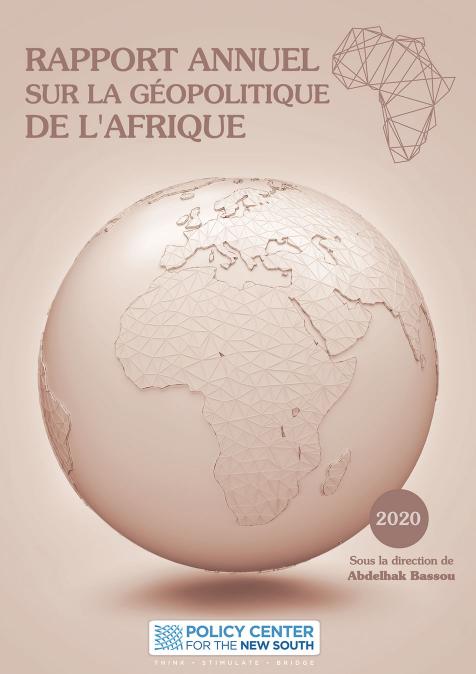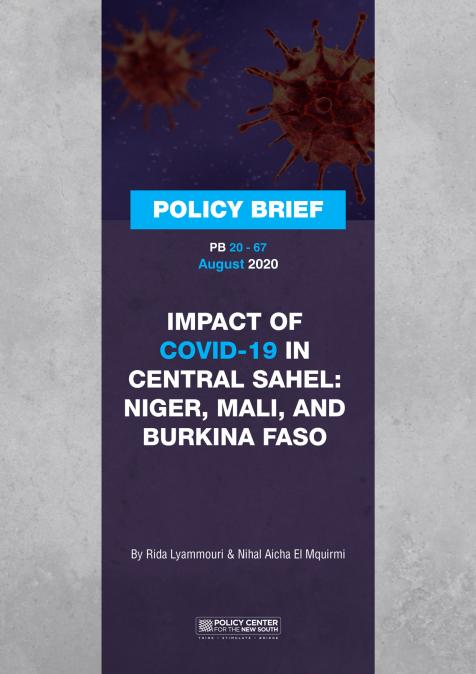Publications /
Opinion
The second edition of the African Peace and Security Annual Conference (APSACO), organized in Rabat by OCP Policy Center, has started on June 18th with a broad debate on the political and strategic aspects of peacekeeping operations in Africa.
Their financial cost was discussed right from the start of the Conference, as well as the ongoing reform processes engaged by the United Nations in addition to the African Union. “This cost is somewhat exaggerated,” said Rachid El Houdaigui, International Relations Professor and Senior Fellow at OCP Policy Center. He reminded the participants that between July 2017 and June 2018, the cost of the 13 current peacekeeping operations (among which 7 are deployed in Africa) amounts to 7 billion dollars, 0,4% of global military expenses.
Financing nonetheless remains one of the main challenges ahead, said Mahamat Saleh Annadif, Former minister of Foreign Affairs of Chad, Special Representative for Mali and Head of MINUSMA (UN operation in Mali). “Whatever might be its peace and security architecture, as long as the African Union has not resolved the financing question, the peace and security appropriation by African will remain a mere vision..”
A crucial political process still lacking
The changing nature of the threat, with the multiplication of armed groups in Africa, has been underlined, as well as the crucial cooperation between the United Nations, the European Union and the African Union. “Peacekeeping operations and military responses alone cannot be efficient tools against instability, insecurity or terrorism, said Youssef Amrani, Mission leader (“Chargé de mission”) at the Royal Cabinet of the Kingdom of Morocco. A political process is crucial, with prospects of long term socio-economic and development reforms at all levels.”
The lack of a political follow-up of peacekeeping operations has been stressed by Miguel Angel Moratinos, former minister of Foreign Affairs of Spain, in strong words: “We have all applauded the French intervention in Mali, avoiding the possible fall of Bamako. Bravo! But what’s next? How many EU ministers of Defense or Foreign Affairs have visited Africa or Bamako? We have lacked the will to establish a new African politic at the EU level, and it is still the case. There is cooperation between EU and AU, but what is the current response to the political transition in Mali? We need diplomacy in Africa with a strategic vision, and not only Defense policies.”
The weakness of the State in Africa
“What peacekeeping can be done in countries where there is no peace?, asked Hugo Sada, Special Advisor of the Dakar Forum on Peace and Security. Africa is the laboratory of peacekeeping since the end of Cold War, with traumas in Somalia in Rwanda and the multiplication of operations in the following period. All the initial theories of classical war between States have changed, with a context of different threats. We find different in Africa experiences of operations: classical, hybrid and parallel like Licorne or Barkane, or African like Amisom (Somalia), operations ad hok like the Multilateral Force against Boko Haram or the G5 Sahel.”
Robert Dossou, former minister of Foreign Affairs of Benin, emphasized the importance of the governance issue, pointing at African political responsibilities in the current situation of the weakness of the State: “There is no State in Africa, he said. It is not built. It is considered like the thing belonging to the men in power. This is not an institutional conception of the State. When you consider power as your thing, you cannot consider your mission seriously, you do as you please and the citizens feel excluded”. He also stressed the fact that “some wars in Africa are provoked by greed around the raw materials, with internal elements and foreign factors.”
A military point of view on political stakes
The conference, attented by numerous officers from the North and South, has allowed military men to give their insights on peacekeeping operations. “Why do they last for too long?” asked General Brigadier Irvine Nii-Ayitey Aryeetey (Ghana), Deputy Commandant of the Kofi Annan Internationl Training Center. Following the Cold War, most countries disengaged from African countries, he reminded, with the setbacks known in Somalia, Rwanda and Liberia.
The terrorist attacks of 9/11 in New York have changed the context. “The current trend is that poor countries (Asia providing the bulk) provide the military and the police components, and the rich countries provide the resources and make all the key decisions, which is really frustrating and confusing, he said. Would any other continent tolerate that level of intrusion? No wonder African peacekeeping operations never seem to end, because all the decision makers do not fully understand the environment.”
Going further, he asked if vested interests are not protected with UN peacekeeping operations, instead of a global concern for the protection of civilians. “Why are the UN deploying troops in some countries and not others? (…) How did we get rid of Taylor (Liberia), Jammeh (Gambia) or Gbagbo (Ivory Coast) but not the “big naughty boys” like Kabila (DRC) or El Bechir (Sudan)?” Finally, on the perspective of the AU reform, he said that “we need to put the money where our mouth is. When we start making the right contribution, then we can start talking about African solutions to African problems”.
The same skepticism has been voiced by General Yohannes Gebremeskel, Force Commander of the United Nations Interim Security Force for Abyei (UNISFA). “With the current approach, mandate and mindset, there will be no solution for the crisis in Africa. African solutions to African problems? Well said, beautiful. But it remains a challenge on the ground”.








